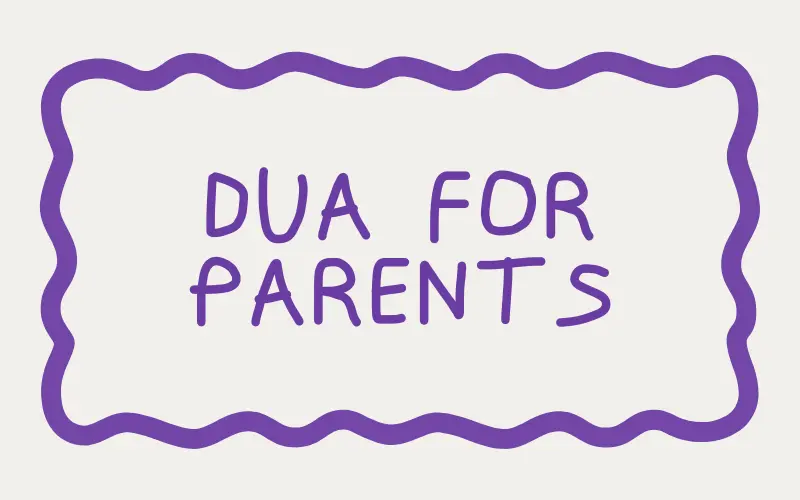In Islam, parents hold a special and revered position, second only to Allah in the rights they are granted by their children. The Quran and Sunnah emphasize kindness, respect, and prayers (dua) for one’s parents as a continuous act of worship. Making dua for parents, whether they are alive or have passed away, is one of the most beloved acts to Allah. It strengthens the spiritual bond and brings immense blessings, mercy, and forgiveness upon the parents. This guide offers a detailed insight into authentic duas for parents, their meanings, and etiquettes in Islam, helping Muslims worldwide to fulfill this sacred duty with sincerity.
1. The Importance of Dua for Parents in Islam
The Quran explicitly commands believers to show kindness and pray for their parents:
“And lower to them the wing of humility out of mercy and say, ‘My Lord, have mercy upon them as they brought me up [when I was] small.'” – Surah Al-Isra (17:24)
Making dua for parents is a manifestation of gratitude for their sacrifices and care. It is an ongoing charity that benefits both the children and the parents, fostering love and mercy within the family. Prophet Muhammad ﷺ also taught that the pleasure of Allah lies in pleasing one’s parents, making dua for them a gateway to divine blessings.
2. Powerful Duas for Parents (Arabic, Transliteration & Translation)
Some powerful and great dua (prayers) you make for your parents are:
a) Dua for the Well-being and Long Life of Parents
Arabic:
رَّبِّ ٱرْحَمْهُمَا كَمَا رَبَّيَانِي صَغِيرًا
Transliteration:
Rabbi irhamhuma kama rabbayani sagheeran
Translation:
“My Lord, have mercy upon them as they brought me up when I was small.” – [Quran 17:24]
b) Dua for Forgiveness and Mercy for Deceased Parents
Arabic:
اللَّهُمَّ اغْفِرْ لِوَالِدَيَّ وَارْحَمْهُمَا كَمَا رَبَّيَانِي صَغِيرًا
Transliteration:
Allahumma ighfir liwalidayya warhamhuma kama rabbayani sagheeran
Translation:
“O Allah, forgive my parents and have mercy on them as they raised me when I was small.”
c) General Dua for Parents’ Blessings and Protection
Arabic:
رَبَّنَا ٱجْعَلْنَا لِلْمُتَّقِينَ إِمَامًا
Transliteration:
Rabbana aj‘alna lilmuttaqeena imama
Translation:
“Our Lord, make us leaders for the righteous.”
(This dua can be prayed for parents and children alike, to ask Allah for guidance and leadership in righteousness.)
3. Etiquettes and Sunnah When Making Dua for Parents
Making dua for parents is a deeply spiritual act that should be performed with sincerity, humility, and respect, reflecting the high status parents hold in Islam. Following the Sunnah (Prophetic tradition) enhances the acceptance and impact of your supplications. It is recommended to begin your dua by praising Allah and sending salutations upon the Prophet Muhammad ﷺ, as this pleases Allah and opens the doors for your prayers to be accepted.
Raising the hands while making dua is a well-known Sunnah, symbolizing humility and earnestness before Allah. Facing the Qiblah (the direction of the Kaaba in Makkah) while praying, if possible, is encouraged as it aligns with the etiquette of formal prayers. Mentioning your parents by name personalizes your dua and reflects a heartfelt intention. Whether you recite your dua in Arabic or your own language, the key is sincerity and devotion.
It is also important to pray regularly, not only in times of hardship or special occasions, but consistently, as continuous dua is a form of ongoing charity for your parents. Lastly, maintain hope and trust in Allah’s mercy, for He listens to every heartfelt supplication and rewards kindness to parents immensely. Make dua with sincerity and humility: Allah loves the supplication made with a sincere heart.
- Begin with praise of Allah and sending salutations on the Prophet ﷺ.
- Raise your hands while making dua, following the Sunnah.
- Mention your parents by name if possible, for a more personal prayer.
- Pray in Arabic or your own language, sincerity matters most.
- Make dua regularly, not just during special occasions.
Be patient and hopeful, trusting Allah’s mercy and wisdom.
4. When and Where to Make Dua for Parents
You can make dua for your parents at any time, but certain moments have greater spiritual benefit:
- After each Salah (prayer), especially after Fajr and Maghrib.
- During the last third of the night, when prayers are more likely to be accepted.
- On Fridays, the blessed day of Jumu’ah.
- During Ramadan, especially on Laylatul Qadr.
- When visiting the graveyard, pray for deceased parents.
During moments of reflection or hardship, to seek Allah’s mercy on them.
5. Spiritual Benefits of Making Dua for Parents
Making dua for parents is not only an act of love and gratitude but also a source of profound spiritual blessings for both the supplicant and the parents. When you pray for your parents, you invoke Allah’s mercy, forgiveness, and protection upon them, which can lighten their burdens in this life and the Hereafter.
This continuous act of supplication serves as an ongoing charity (sadaqah jariyah), benefiting deceased parents long after they have passed away. Additionally, making dua nurtures humility, empathy, and gratitude within your own heart, strengthening your spiritual connection with Allah and reinforcing family bonds.
It also opens pathways for divine blessings in your own life, as the Prophet Muhammad ﷺ emphasized that pleasing and honoring one’s parents is closely linked to earning Allah’s pleasure. Ultimately, regular dua for parents deepens your faith, reminds you of your own responsibilities, and brings peace and tranquility to your soul through the remembrance of Allah’s mercy.
6. Additional Recommended Duas for Parents
Dua for Parents’ Forgiveness and Paradise
Arabic:
رَبَّنَا ٱغْفِرْ لِي وَلِوَالِدَيَّ وَلِلْمُؤْمِنِينَ يَوْمَ يَقُومُ ٱلْحِسَابُ
Transliteration:
Rabbana ighfir li waliwalidayya walilmu’mineena yawma yaqoomu al-hisaab
Translation:
“Our Lord, forgive me and my parents and the believers on the Day the account is established.” – Surah Ibrahim (14:41)
7. Can You Make Dua in Your Own Language?
Absolutely! While Arabic is the language of the Quran and traditional Islamic supplications, Islam encourages heartfelt sincerity. If you do not know Arabic, making dua in your native language is perfectly acceptable, especially outside formal prayers. What matters most is your intention and heartfelt connection to Allah when praying for your parents.
8. How to Teach Children to Make Dua for Their Parents
Teaching children to make dua for their parents is a valuable way to instill Islamic values of respect, gratitude, and compassion from an early age. Start by introducing simple, easy-to-remember duas in Arabic along with their meanings in the child’s native language, so they understand the importance behind the words.
Use stories from the life of the Prophet Muhammad ﷺ that highlight the significance of honoring and praying for parents, making the lessons relatable and engaging. Encourage children to make dua daily, especially during moments of prayer or before sleeping, turning it into a consistent habit. Leading by example is equally important; when children see their parents sincerely making dua for loved ones, they are more likely to emulate this behavior.
Praise and gently remind children when they pray for their parents, reinforcing the spiritual reward and emotional connection it brings. Ultimately, nurturing this practice helps build a foundation of piety and family love that children carry throughout their lives. Remember, instilling the habit of dua for parents in children nurtures piety and family respect from a young age.
Summing Up
Making dua for parents is a deeply spiritual act that embodies gratitude, love, and hope for Allah’s mercy. It is one of the most rewarding practices a Muslim can perform, benefiting both the parents and the supplicant in this life and the next. Whether praying for their health, forgiveness, or eternal peace, every sincere dua strengthens family bonds and draws one closer to Allah’s infinite mercy. Let us commit to regularly praying for our parents, honoring their sacrifices, and seeking Allah’s blessings upon them.







One Response
Hi there to every, for the reason that I am actually keen of reading this website’s articles is to be updated daily. It consists of informative stuff.